Is coconut oil good for Cooking? Healthy or unhealthy?
Coconut oil is a popular choice for cooking due to its high smoke point and flavor. It’s suitable for baking, frying, and sautéing.
introduction: is coconut oil good for COOKING?
Embracing a versatile profile, coconut oil has gained significant traction among health-conscious cooks and those who enjoy tropical flavors in their dishes. Known for its resistance to oxidation at high temperatures, it becomes an ideal option for recipes requiring medium to high heat.
With its unique composition of fatty acids, coconut oil can contribute to a balanced diet when used in moderation. It not only renders a distinctive taste but also adds a nutritional twist to a variety of cuisines. The oil’s popularity is also bolstered by its purported health benefits, including boosting metabolism and supporting heart health, although these claims invite ongoing research and debate.
Coconut Oil Basics
Coconut Oil Basics delve into the essence of this popular kitchen staple. Packed with unique properties and varieties, coconut oil sparks endless curiosity. Whether drizzling it over a salad or sautéing your favorite veggies, understanding its composition and heating characteristics opens the door to healthier cooking.
Composition And Types
Coconut oil is unique, with 90% saturated fats. Saturated fats can withstand higher temperatures, making it ideal for cooking. Mainly composed of medium-chain triglycerides (MCTs), these fats metabolize differently, offering energy boosts. Stores typically carry two main types of coconut oil:
- Virgin Coconut Oil: Extracted from fresh coconut meat without high heat, it retains more flavor and nutrients.
- Refined Coconut Oil: Made from dried coconut meat, it’s processed to remove flavor and impurities, suitable for high-temperature cooking.
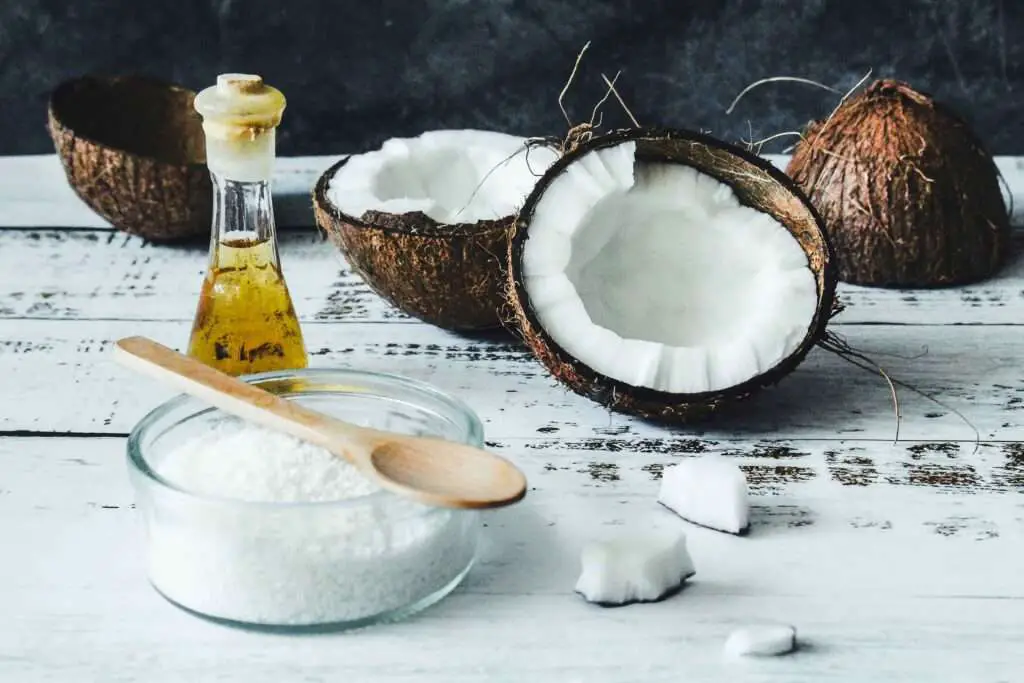
Smoke Point And Stability
The smoke point of an oil defines how hot it can get before it starts to smoke and break down. Stable cooking oils are essential for health and flavor. See the table below for coconut oil’s smoke point:
| Type of Coconut Oil | Smoke Point |
| Virgin Coconut Oil | 350°F (177°C) |
| Refined Coconut Oil | 450°F (232°C) |
Health Impacts
When it comes to cooking, coconut oil stands out. People love its taste and smell. But what about health? Let’s dive into how it affects your body.
Nutritional Profile
A spoonful of coconut oil packs a punch. It’s rich in medium-chain triglycerides (MCTs). These facts are different. They go straight to the liver. There, they turn into energy or ketones. Coconut oil also has lauric acid. This acid fights germs and keeps you healthy.
| Nutrient | Amount in 1 tbsp |
| Calories | 121 |
| Total Fat | 13.5g |
| Saturated Fat | 11.2g |
| Cholesterol | 0mg |
Heart Health Controversy
Debate surrounds coconut oil and heart health. Some studies say it’s good. Others warn to be careful. Coconut oil has saturated fat. Too much isn’t great for your heart. But it also boosts good cholesterol. The key? Use it in moderation.
Weight Management Perspectives
Can coconut oil help you stay slim? Some say yes. It’s the MCTs again. They boost metabolism and reduce appetite. But remember, coconut oil is high in calories. Don’t eat too much. Find balance and pair it with a healthy diet.
- Improves metabolism slightly
- May reduce hunger
- High in calories
- Should not replace other dietary fats
Culinary Uses Of Coconut Oil
Exploring the world of cooking oils brings us to a tropical favorite: coconut oil. This versatile oil has found a special place in kitchens worldwide. It’s loved for its unique taste and impressive heat stability. Let’s dive into the many ways coconut oil can spice up your culinary adventures.
Flavor Profile And Food Pairings
Coconut oil offers a distinct tropical flavor that enhances various dishes. Whether it’s a sweet touch to baked goods or a savory twist to sautés, this oil brings joy to taste buds.
- Curries: Adds richness and exotic taste
- Smoothies: Gives a creamy texture
- Baking: Imparts a sweet aroma
- Seafood: Complements with a subtle sweetness
Performance In High-heat Cooking
Coconut oil stands out for its high smoke point, around 350°F for virgin and up to 450°F for refined. This makes it suitable for:
- Frying
- Sautéing
- Roasting
Its stability means it doesn’t break down easily, keeping your meals healthy and delicious.
Substituting Other Oils With Coconut Oil
Swapping oils in recipes can be simple. Here, coconut oil shines again. You can replace butter or other oils at a 1:1 ratio in most recipes.
| Oil | Coconut Oil Substitute |
| Vegetable Oil | 1 cup |
| Butter | 1 cup |
| Olive Oil | 1 cup |
Remember, for the best flavor and health benefits, choose unrefined, virgin coconut oil.
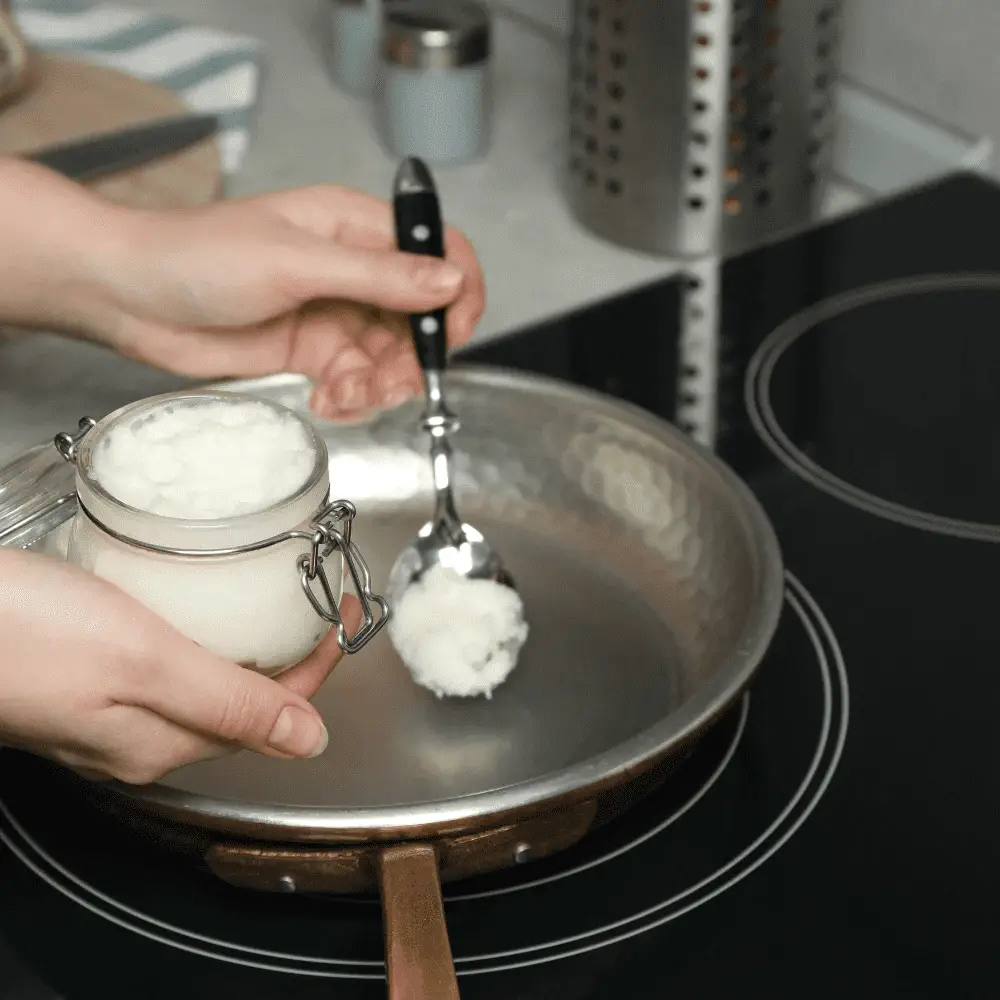
Expert Opinions
Expert Opinions shine a light on whether coconut oil deserves a spot in your kitchen. Delve into the insights of nutrition and culinary professionals to make an informed decision about using coconut oil in your cooking routines.
Dietitians’ Recommendations
Nutrition experts dissect the health aspects of coconut oil, often focusing on its high saturated fat content. Dietitians examine its unique medium-chain triglycerides (MCTs), which promote energy and may boost metabolism.
- Heart Health: Cautiously use coconut oil due to saturated fats, possibly affecting cholesterol.
- Weight Management: MCTs might help with weight control but monitor overall intake.
- Dietary Balance: Include a variety of fats, such as olive oil and avocado, for a balanced diet.
Some dietitians suggest coconut oil as a plant-based fat alternative for vegans or those with dairy intolerances.
Chefs’ Take On Cooking With Coconut Oil
Chefs appreciate coconut oil for its high smoke point and distinctive flavor. Its wide range of uses in cooking makes it suitable for various culinary purposes.
| Cooking Method | Chefs’ Opinion |
| Sautéing | Good for high-heat cooking without burning |
| Baking | Offers a dairy-free alternative to butter |
| Frying | Stable for frying at high temperatures |
Research On Coconut Oil
Research on Coconut Oil dives into its health claims and controversies. Scientific scrutiny unveils how coconut oil behaves in our bodies, especially when used for cooking. We will explore recent findings and what they suggest about coconut oil’s role in our diets.
Studies On Saturated Fats
Saturated fats often face criticism for their health impacts. Not all saturated fats behave the same way, though. Experts once thought they always raised heart risk. This outlook is changing. Research is key to understanding these fats better.
- Some studies link saturated fats to higher bad cholesterol.
- Others show certain types do not increase heart disease risk.
- Coconut oil is high in a type of saturated fat called medium-chain triglycerides (MCTs).
- MCTs are processed differently in the body compared to other fats.
Coconut Oil’s Effect On Cholesterol Levels
Cholesterol levels can herald heart health status. Researchers thus focus here to gauge coconut oil’s effects. Does it harm or help? Evidence offers a mixed bag.
| Study | Findings |
| Research A | Coconut oil lifted good HDL cholesterol. |
| Research B | It also raised bad LDL cholesterol in some cases |
| Research C | No strong link to heart disease was found. |
Sustainable And Ethical Considerations
Coconut oil has gained popularity in kitchens worldwide. It’s praised for its high smoke point and unique flavor. Beyond health benefits, we must consider sustainable and ethical implications of using coconut oil for cooking.
Impact On The Environment
The production of coconut oil can affect our planet. The demand for coconut oil impacts land use, and ecosystems. Coconuts grow in rich, biodiverse regions. Intensive farming can lead to deforestation and habitat loss.
- Soil erosion and nutrient depletion are concerns.
- Water usage varies by location but can be significant.
- Farming practices influence the carbon footprint.
Choosing organic coconut oil may help. Organic practices support the environment. They promote biodiversity and reduce chemicals.
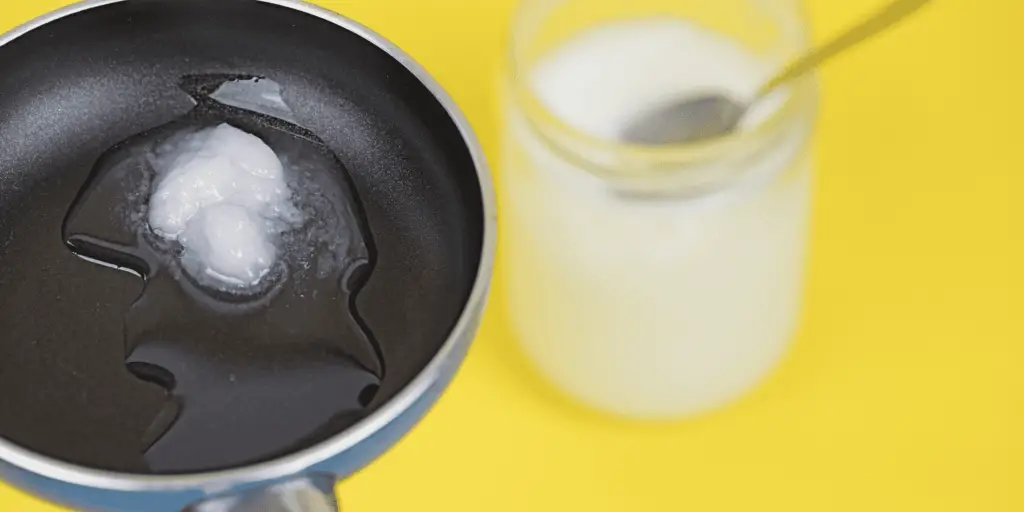
Fair Trade And Production Practices
Coconut oil production should be both fair and ethical. Labor conditions and wages are crucial factors. Fair Trade certification ensures:
| Social Aspect | Benefits |
| Worker rights | Fair wages and safe conditions |
| Community investment | Supports local development |
| Environmental standards | Promotes sustainable practices |
Check for a certified Fair Trade label. This shows that you’re supporting ethical practices.
Frequently Asked Questions For Is Coconut Oil Good For Cooking?
Is It Healthy To Cook In Coconut Oil?
Cooking with coconut oil can be healthy in moderation, as it contains medium-chain triglycerides (MCTs) and may support heart health. It’s important to use virgin coconut oil and balance its high saturated fat content with other healthy fats in your diet.
What Is The Healthiest Oil To Cook With?
The healthiest oils for cooking are olive oil, avocado oil, and canola oil due to their high levels of monounsaturated fats and heat stability. These oils offer heart-healthy benefits and can sustain high-temperature cooking.
Is Coconut Oil a Healthier Cooking Option Than Olive Oil?
Coconut oil and olive oil have different health benefits. Olive oil is generally considered healthier for cooking due to its higher monounsaturated fat content and beneficial antioxidants.
Is It Better To Cook With Coconut Oil Or Vegetable Oil?
Choosing between coconut oil or vegetable oil depends on your health preferences and cooking needs. Coconut oil offers a higher smoke point and distinct flavor, suitable for medium-high heat cooking. Vegetable oil is versatile and neutral, ideal for various cooking methods.
Conclusion
Exploring the benefits of coconut oil has shown its versatility and health potential in cooking practices. It’s clear that, used judiciously, coconut oil can be a valuable addition to a balanced diet. With its distinctive flavor and high smoke point, it lends itself well to various culinary applications.
In weighing up its nutritional profile against your individual dietary needs, coconut oil could indeed be a wise choice for your kitchen creations.





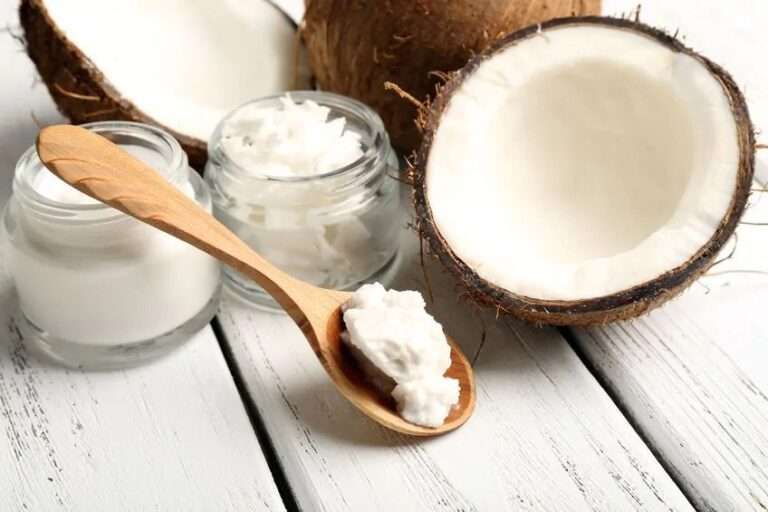


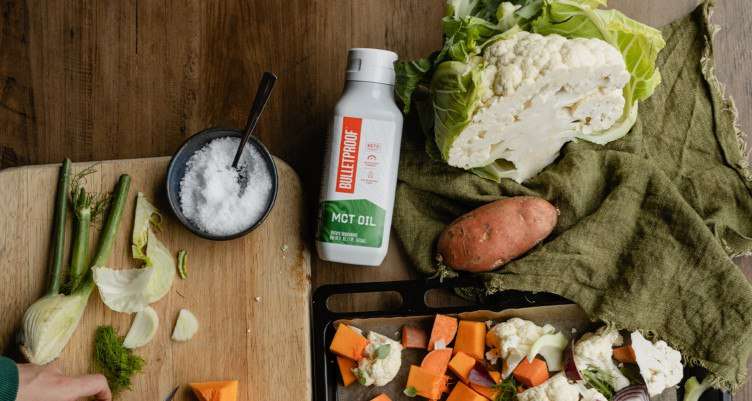

7 Comments